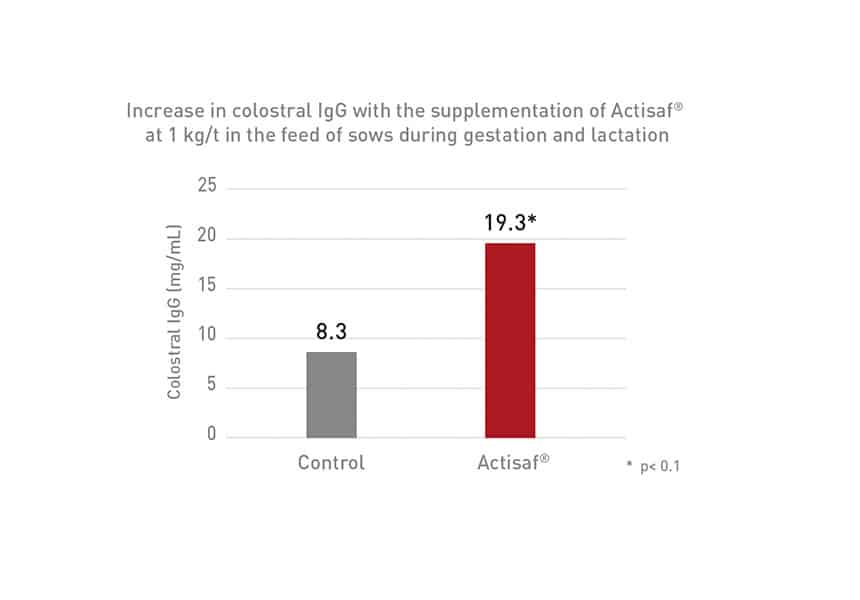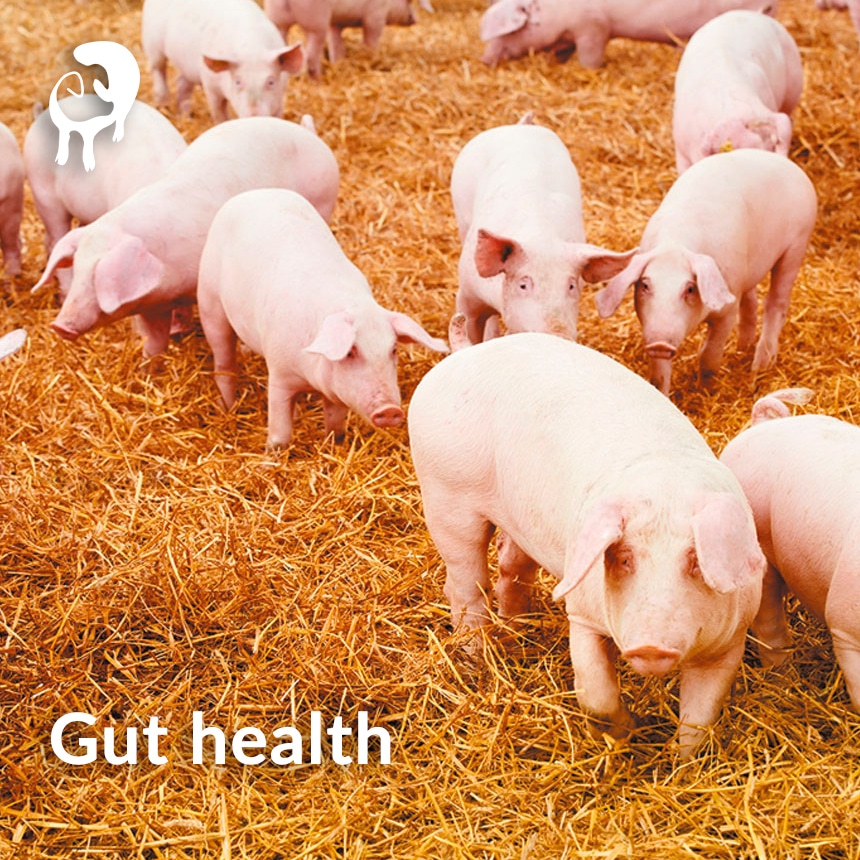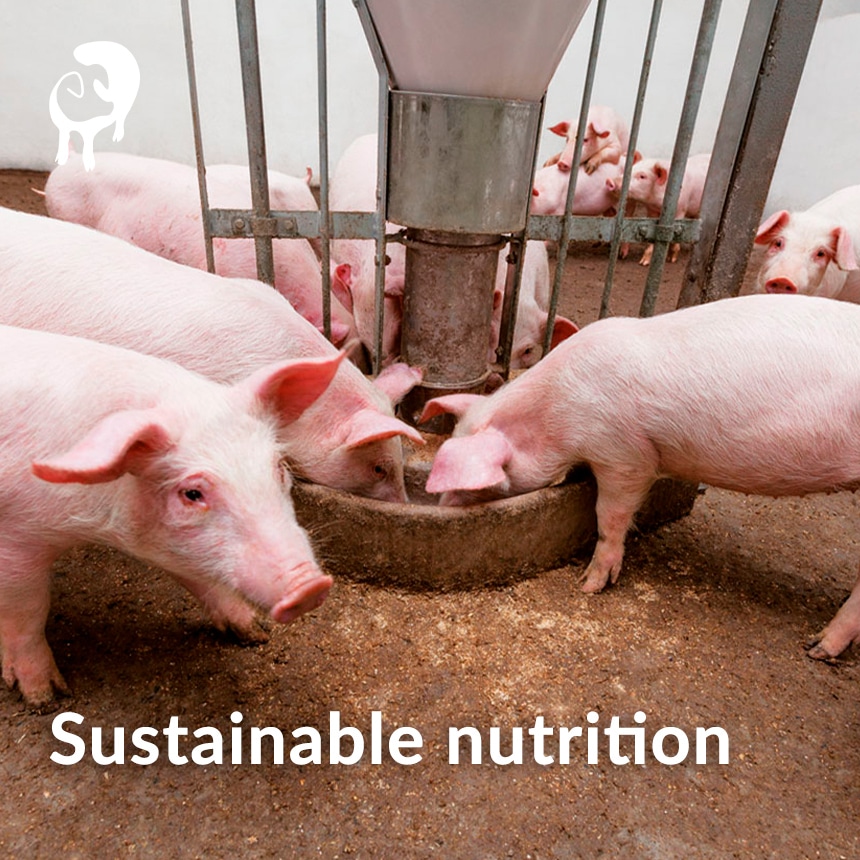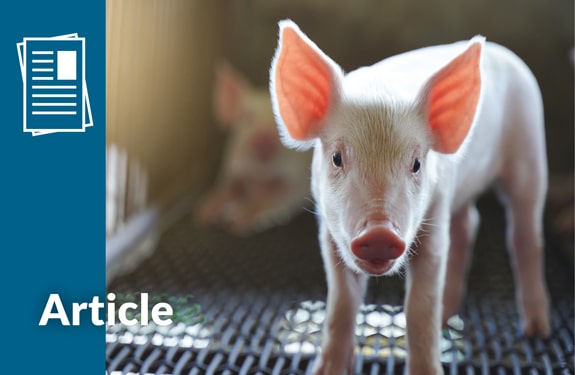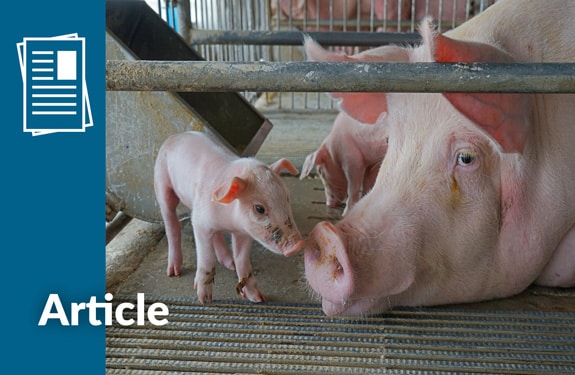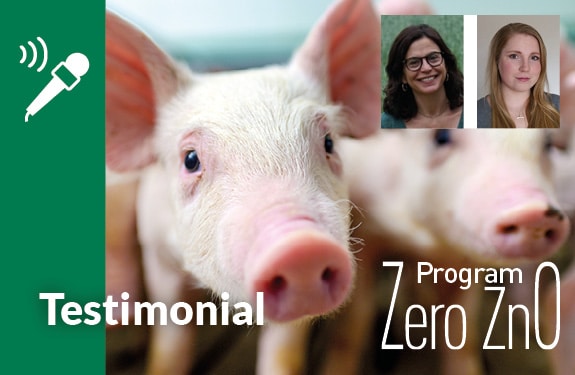The post-antibiotic era is a golden opportunity for all swine producers
The development of antimicrobial resistance by pathogenic bacteria, associated with antibiotic treatments, has become an important public health concern and the main driver behind the gradual restriction and substitution of antibiotic use. In this post-antibiotic era, it is of utmost importance to value nutrition and its impact, not only on animal performance, but also on microbiota and gut health. Using pre and probiotics in combination with eubiotics, known as functional nutrition, promotes the growth of a healthier microbiota, instead of eliminating microbiota in pursuit of better animal health and well-being.

Innovative research on the mode of action of yeast probiotics
With our own dedicated research team, and universities around the world, we are investing in emerging research in relation to 16s rRNA sequencing. This allows us to measure simultaneously thousands of biochemical molecules derived by the host, as well as bacteria, identifying which molecular pathways are regulated by intestinal microbiota. It also shows us how these pathways are affected by antibiotic use, nutrition, and intestinal diseases.
This is helping us identify how probiotics interfere with each phylum or genera of bacteria, improving our understanding of how to modulate the microbiota, and positively influencing animal gut health in the process. Ultimately, this helps us to identify the phylum or genera of bacteria that are directly related to key performance parameters, such as average daily gain, growth rate, and feed conversion.
Probiotic yeast Actisaf® Sc 47 contains immunomodulatory molecules
Molecules, such as MOS and beta-glucans, help to stimulate the sow’s immune system and increase the immunoglobulins secreted in the colostrum and milk, therefore passing to the piglet’s serum. This results in healthier piglets and has direct consequences on performance, evidenced by heavier piglets at weaning, lower mortalities, and better weaning weights, all without the use of antibiotics.
Actisaf® Sc 47 is able to influence piglet gut microbiota modulation at birth
Sows supplemented with Actisaf® Sc 47 during gestation and lactation, shed a certain amount of live yeast in their faeces, and piglets are likely to acquire live yeast by contact with these. Numerous trials have confirmed that probiotic yeast ingested by piglets from sow faeces can act directly on the piglet gut, improving performance by enhancing gut health. This is achieved, either by an immunomodulatory effect, or by orientating the gut microbiota towards beneficial bacteria.










